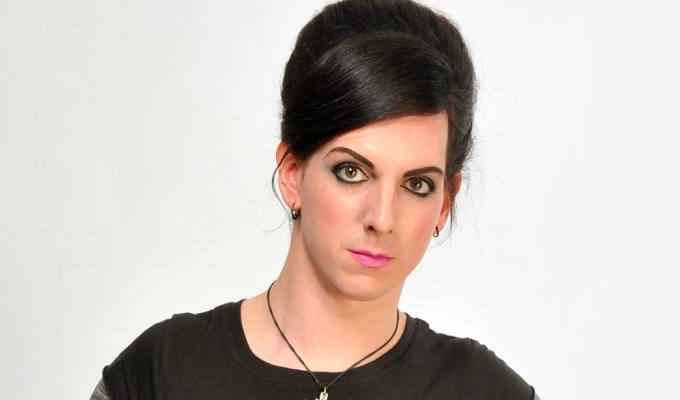Monty Python: Almost The Truth (The Lawyer’s Cut)
Note: This review is from 2009
Review by Steve Bennett
‘This is the documentary I always hoped would be made - something so complete and so faithful to the truth that I don't need to watch it,’ says Terry Jones of Monty Python: Almost The Truth (The Lawyer’s Cut). And certainly, it’s hard to ignore the sense of perfunctory duty attending this film, released to mark the 40th anniversary of Python’s first broadcast on the BBC.
The five surviving Pythons are open and affable, their contributions supplemented by archive footage of Graham Chapman and testimony from his partner David Sherlock. But the film can’t be said to be the definitive account of their collaborative career – that function, arguably, having already been accomplished by their lavish 2003 autobiography and Michael Palin’s diaries. There are no fresh revelations here, nothing to enflame the interest of devoted fans, nothing in fact beyond a neat encapsulation of the Python story for cinema.
In a Pythonesque introduction – and it’s worth reiterating Jones’s dismay here that the term is now so immediately understood and pigeonholed – the group’s ‘legal representative’, Mr Abe Appenheimer (Danny Scheinmann) is dispatched by atomic bomb before a pastiche of the trumpet-blaring Life of Brian theme commences.
Perhaps the lawyers truly have triumphed, because in this 105-minute cut – a seven-and-a-half-hour version is released on DVD in a few weeks – nothing diverts from the accepted history: the British contingent nurture their talent at Oxbridge, John Cleese meets Terry Gilliam in New York, The Frost Report, At Last The 1948 Show and Do Not Adjust Your Set, TV, the movies, and their current semi-retirement.
For all Python’s formal innovation and anarchic spirit (though they acknowledge their creative debt to The Goons, Spike Milligan and, after a fashion, Pete and Dud) this is a decidedly by-the-numbers hagiography. Although it beginning, compellingly, with them recalling their relationship with their fathers, there is, subsequently precious little effort to analyse or interpret their humour and collective chemistry.
There is though, plenty of appreciation from ex-colleagues such as Neil Innes and Carol Cleveland, as well as a succession of fond tributes from admirers including Eddie Izzard, Phill Jupitus, Sanjeev Bhaskar and Iron Maiden’s Bruce Dickinson. Steve Coogan visibly regresses to childhood as clips of the Piranha Brothers are endearingly intercut with him impersonating Palin.
Interviewers Alan G Parker and Ben Timlett remain invisible and unheard throughout, preferring to simply let the Pythons speak for themselves against featureless black backdrops, the individual reminisces spliced between classic clips. Although the Pythons’s wry self-deprecation undercuts the aura of reverence slightly, tensions and creative differences in the group are occasionally raised but left frustratingly unexplored.
Cleese, for example, claims his absence from the third series effectively spelt the end of the show because without him to constantly ‘lock horns’ with Jones, the Welshman became too dominant, a view seconded by Eric Idle. Yet Jones is afforded no right of reply and the case for the prosecution rests unchallenged.
Also irksome is the democratic rhythm the film settles into, whereby each Python takes it in turns to profile the others: Palin was the nice, agreeable one, on this everyone agrees; Idle had the songwriting flair and the managerial nous, forever keeping the bottom line in mind; and Chapman, well, he remained a mystery, the others admitting to staggering obliviousness to his alcoholism and failing health, a backhanded yet heartfelt tribute to his acting ability.
Interestingly, BBC Two is broadcasting an hour-long version of Almost The Truth on October 3. Will it include the wonderful, sepia-tinted anecdote of the proto-Pythons’ meeting with Michael Mills, head of light entertainment at the corporation? Despite lacking a title and any real idea of the show’s format, they left his office that day with a commission for ‘13 episodes. And that’s all’. Moreover, they were offered free rein to experiment – until the BBC finally realised they had a cult, potentially child-corrupting hit on their hands and began censoring the mention of bodily functions.
The question of how far Python stretched comedy’s boundaries in terms of art, ambition and taste are more or less glossed over here as established historical fact. Like the Beatles, their untouchable status negates proper critical analysis. Still, it’s hard to suppress a cheer seeing Cleese and an unusually fired up Palin staunchly defending Life of Brian against the Bishop of Suffolk and Malcolm Muggeridge. And there’s a twinkle in Gilliam’s eyes as he recalls foreseeing the impending storm the film would provoke but relishing it all the same.
The controversies surrounding Jerry Springer: The Opera and Sachsgate seem relatively minor in comparison to that whipped up around Brian. But given the prevailing sense of caution currently hanging over television comedy, the importance of Cleese to Andrew Sachs’ career and the original Python series to Russell Brand, who recalls it working on his younger self like a virus, it’s intriguing to consider whether Python has inadvertently and bizarrely ended up constricting British comedy.
Of course, such speculation is beyond the remit of this enjoyable but wholly predictable documentary. Unless it’s in the DVD version.
Reviewed by: Jay Richardson
- Monty Python: Almost The Truth (The Lawyer’s Cut) will be shown at Vue cinemas throughout the UK on Tuesday, September 29 for one day only. The seven hour version is released on DVD on October 26, click here to pre-order.
Review date: 27 Sep 2009
Reviewed by: Steve Bennett






